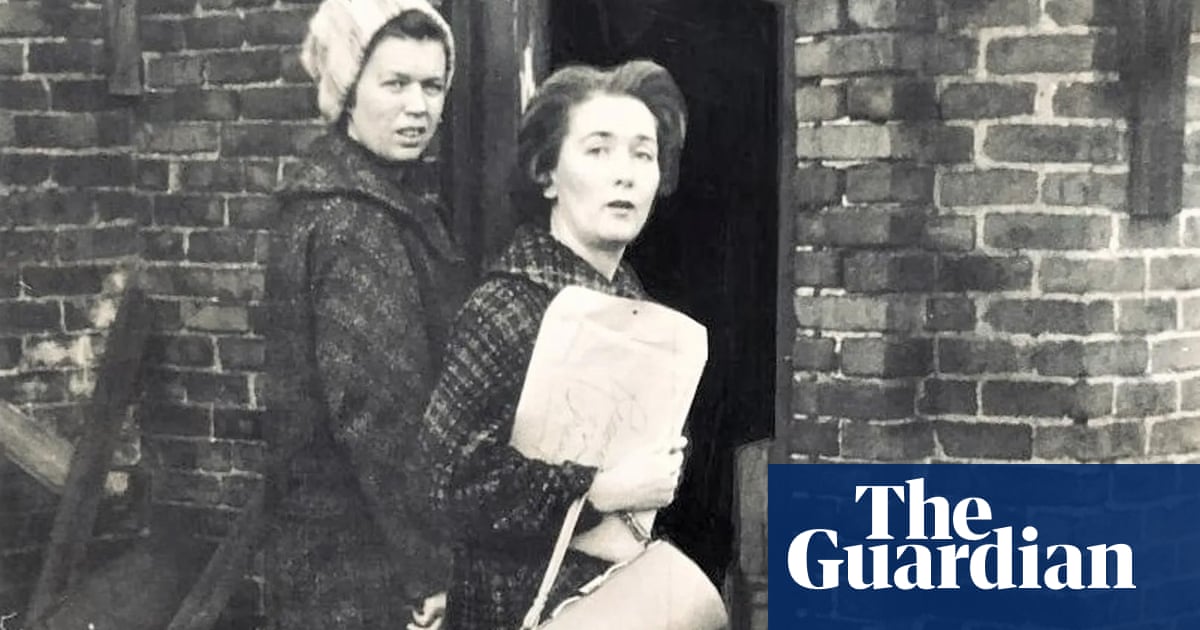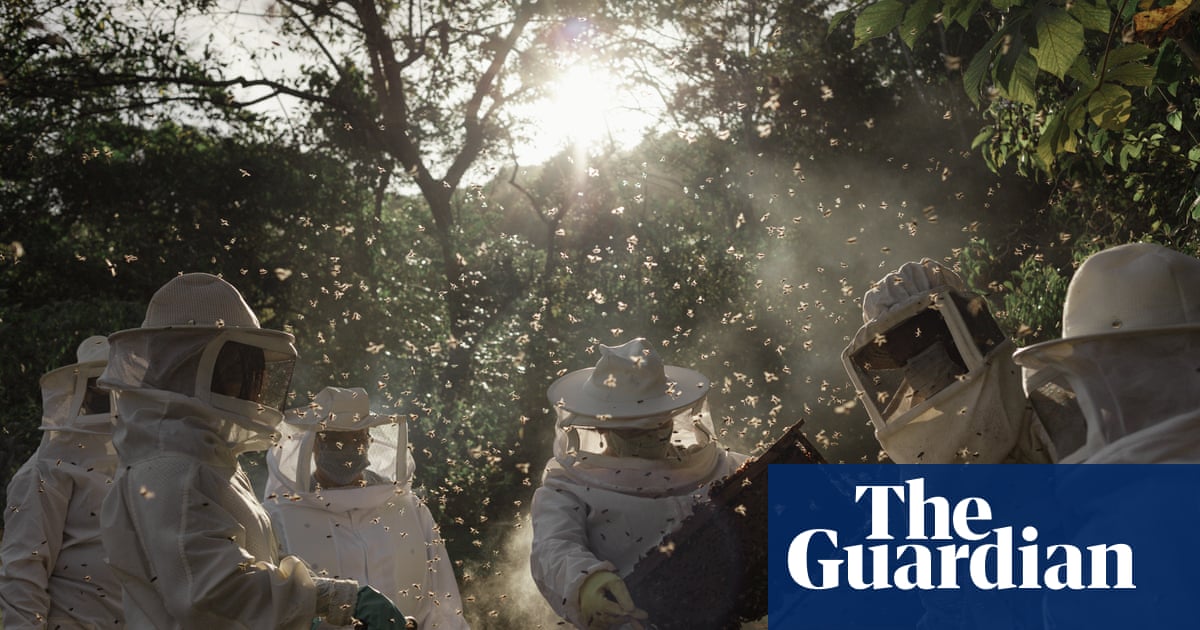
Queues at food banks, schools charging parents’ mobile phones, and plumbers fixing boilers for nothing so pensioners don’t freeze have become a routine part of life in the UK: the result of more than a decade of crippling austerity and a pandemic that hit the lowest paid the hardest.
On the Guardian’s video team, where I’m a producer, we’ve spent a year speaking to individuals who have gone far beyond the extra mile to support their communities, to fill the gaps where state support is lacking. We rightly celebrate these people as inspirational, but rarely do we question what burden this puts on them.
Deep into the winter lockdown we met Pastor Mick Fleming. He was called to officiate at Covid funerals people couldn’t afford, to stock bare cupboards, and to be on the end of the phone when they were feeling suicidal. He ran his ministry – known as the Church on the Street – from his van and his mobile phone.
Deep structural inequalities, including deprivation, a high incidence of chronic illness and insecure work left towns such as Burnley particularly vulnerable to the pandemic, and the former drug dealer-turned-vicar explained that for a lot of people the pandemic was one more problem on an already long list. He has since moved in to an old gym just off the high street, where he sees up to 1,000 people a week, paid for by a crowdfunder because people were so moved by Mick’s media appearances.
It has been a big year for Mick, but he has also made some significant sacrifices: not least living in a separate house from his wife. This is partly because she was having cancer treatment and he didn’t want to bring Covid home when she was vulnerable. Also, the magnitude of what they deal with – his wife also works for Church on the Street – means that they need their own space to process everything.
Mick is frequently confronted with his past experiences of child abuse and drug taking as he fields requests for help. He has no formal training to deal with these often difficult conversations, but uses the basic principle of compassion, inspired by his own recovery. He cries a lot and encourages his volunteers to do the same.
In Glasgow we met Peter Krykant, the man behind the UK’s first “drug consumption van”. He would drive to the city centre four times a week in his converted ambulance stocked with needles, naloxone supplies and clean water.
Within minutes people would turn up to make the most of a warm, dry and sterile environment where they could inject. Peter and his team of volunteers would supervise every injection, and were always on hand if anyone wanted to chat. Many of the van users we spoke to had experienced deep personal trauma that had contributed to their drug use.
Scotland has the highest drug mortality in Europe, with deaths disproportionately represented in the most deprived areas, and while the Scottish government has shown interest in the potential use of overdose prevention centres, Peter’s van has been the only attempt at such a facility to date – and it was never formally sanctioned. He relied on crowdfunding to support what he was doing and because he lost his job when he started the van project, he estimates he has racked up debts of about £10,000.
Peter risked arrest as a result of running the service, but the biggest consequence has been the impact of witnessing so much trauma. The nature of his approach meant that he could not access professional psychological support, and after being clean for 11 years Peter started taking drugs again. He told me he was in so much “pain emotionally”. He might have been providing respite for some people, but it wasn’t sustainable for one man to shoulder the entire burden.
Six months on, Peter believes that Scotland is now edging towards an official injection site, and that the hours he has put into the van have contributed to that. He now has a job with a substance misuse charity, but the van regulars are always on his mind. He thinks about what they are doing now “in the winter, injecting in alleyways”, and “feels guilty” that he can no longer be there for them.
We visited Blackpool in November, where the cuts to universal credit were taking their toll. One man tearfully told us that he now has to choose between feeding himself and his dog. He is one of hundreds who visit the Amazing Graze soup kitchen on a cold Friday night for a hot meal and a bag of groceries to help get him through the week.
It’s run by Mark and Abbie Butcher, a couple who provide so much more than meals. They ring round hotels to find beds for homeless people, plead with charities to get others into detox programmes and provide pastoral care and housing for their chefs – many of whom were themselves once homeless. It has become such a part of their lives that they’ve had to promise their children they won’t invite anyone extra to Christmas dinner this year (they will make a Christmas dinner at the soup kitchen before the big day instead).
Amazing Graze doesn’t get council grants but funds most of what it does with the profits from a pizza restaurant, and also has crowdfunding boosted by its media appearances. Yet it’s still a scramble for donations. As the queue grows outside, volunteer Sue explains that the hardest thing is when they don’t have much to give, and tonight it’s just fruit and bread. She had put out a call for more food on Facebook but got nothing. “Maybe everyone is struggling now.” She later admitted to spending £25 a week of her own money on pet food so other people’s pets didn’t go hungry.
There have been others too. In Newham, east London, which has the highest number of children living in poverty in the city, we met ex-offender Raheel Butt who sold his house to set up a gym to try to steer young people away from gang violence. And Nicole Bello, who drove from Kent into the borough every day to run a summer school for the children of parents who needed to go to work in the holidays. She knew the parents needed help because she met them at the food bank she had set up in the pandemic.
These volunteers, and so many others we met, are providing a vital service. Someone to speak to in person, not at the end of a phone line. A hot meal in the warm. Someone who will offer support where others might call the police. They are the bedrock of our communities, and exactly what Mick believes will help heal “the deep social scars inflicted by the pandemic”. But he’d like to see opportunities for projects such as his, driven by a desire to help others, to be able to bid for funding.
When we clapped for health workers during the pandemic, they said thank you but also asked for a pay rise. It’s now time to think about how the initiatives that we celebrate can be nourished and sustained. No one should be left strung out, broke or worse off because they wanted to make their community better.












